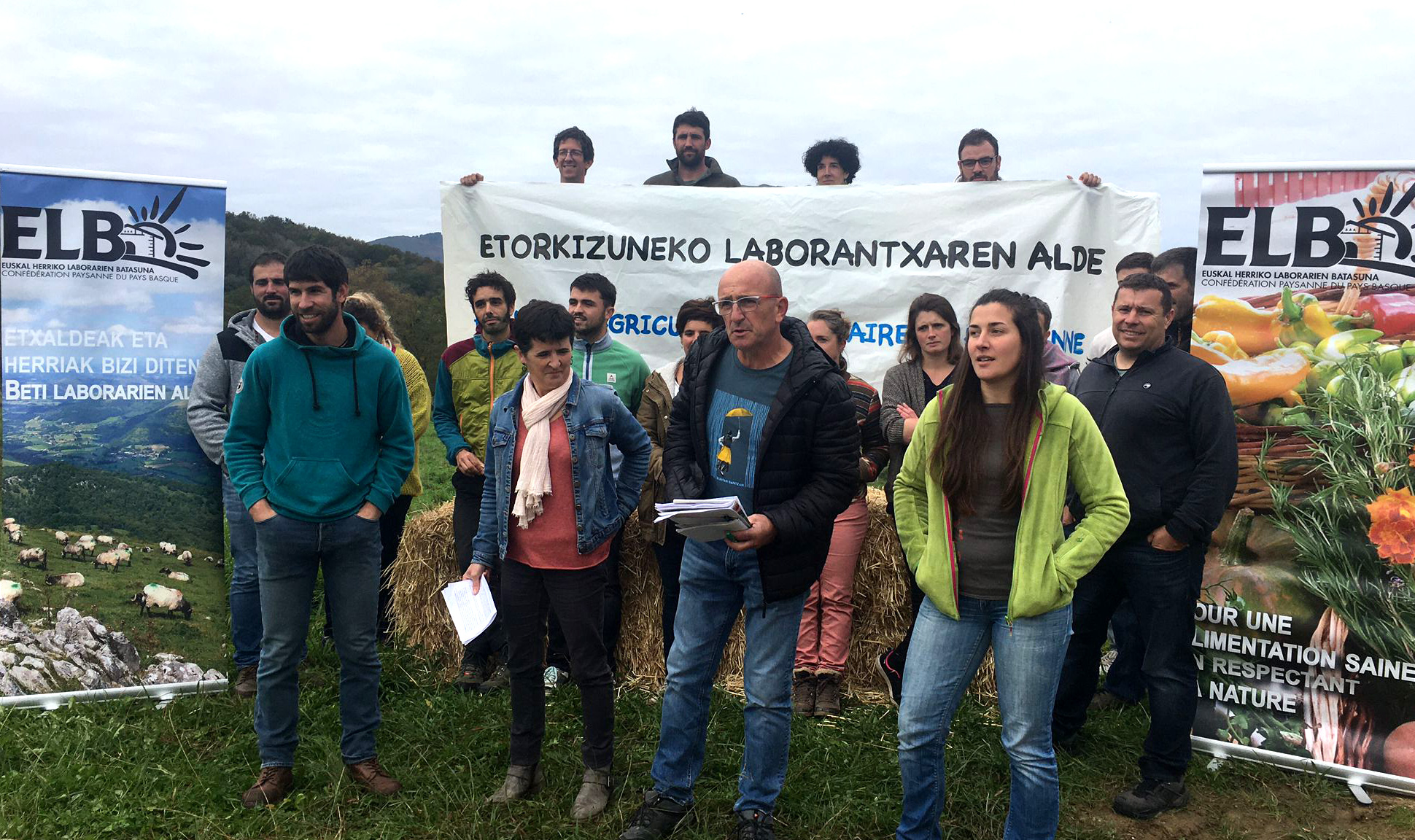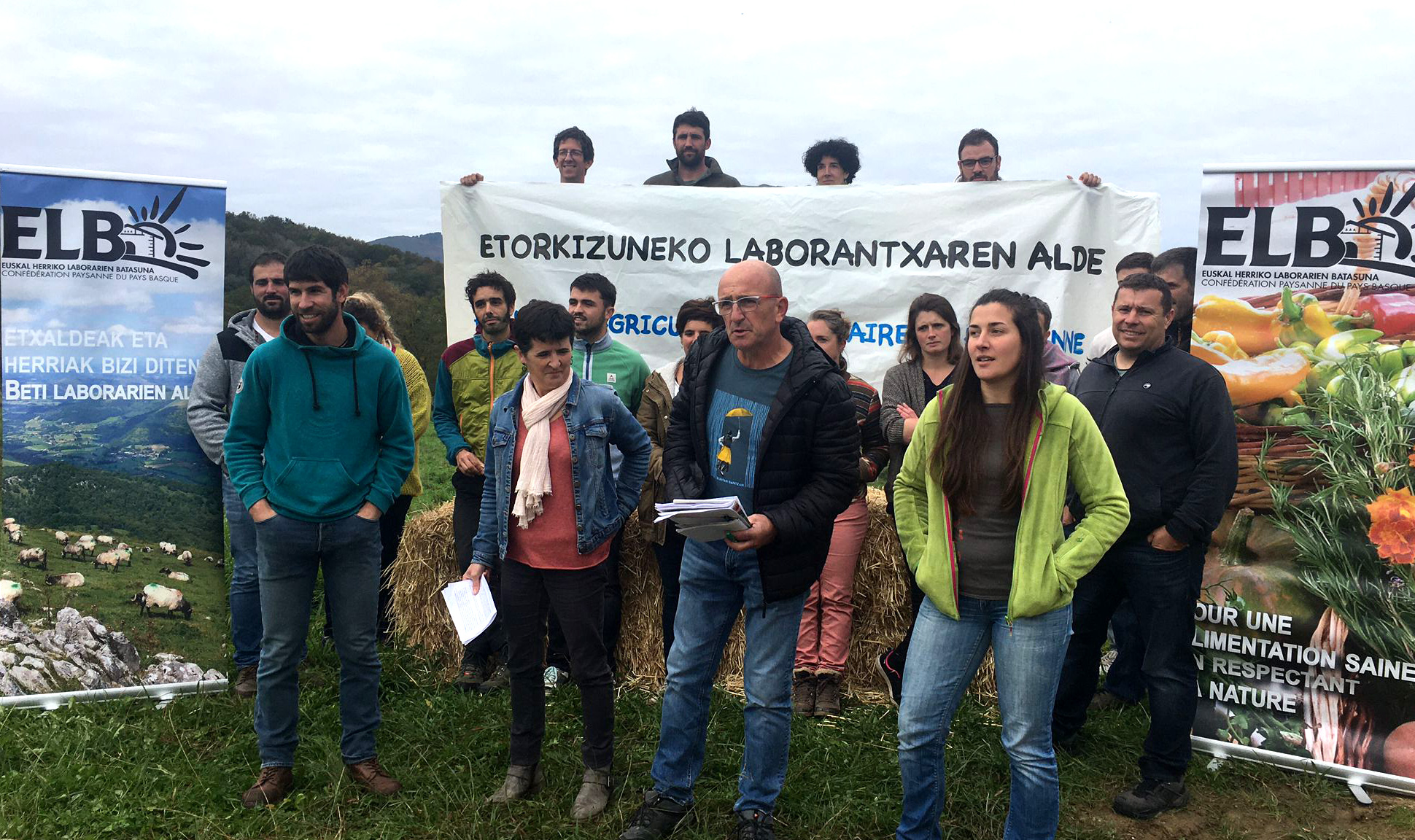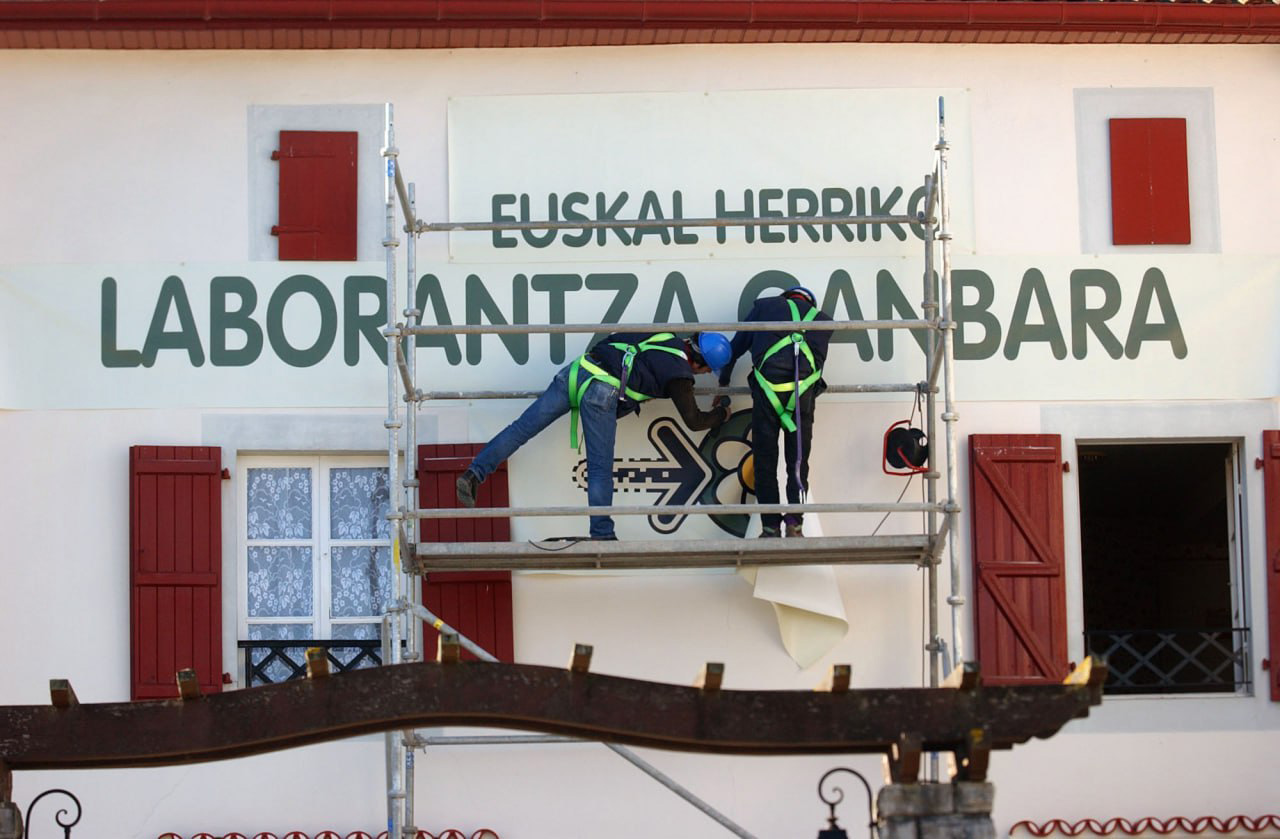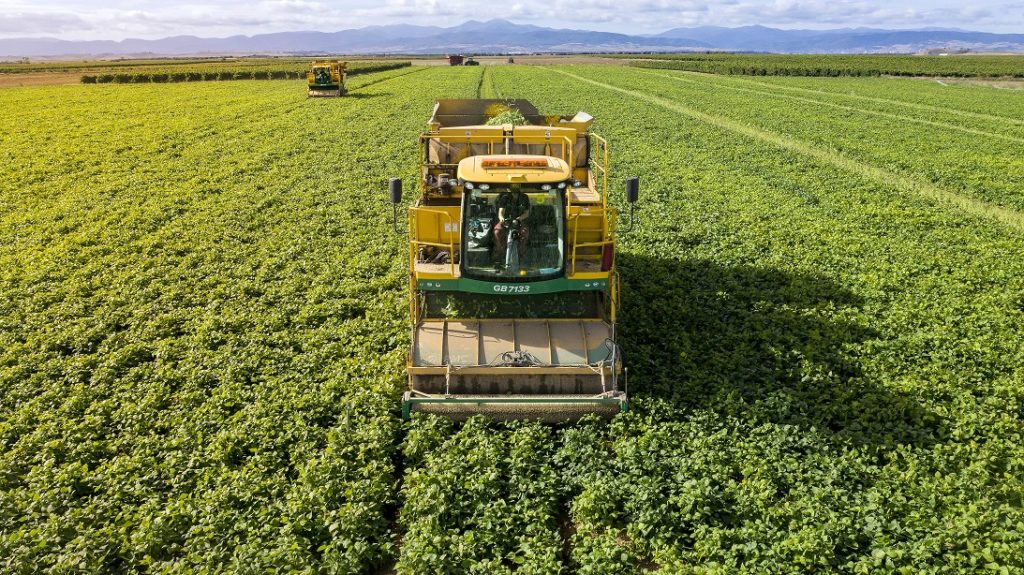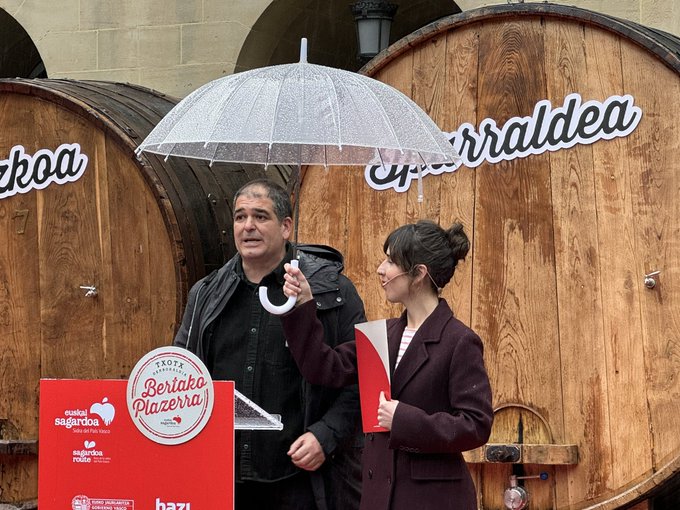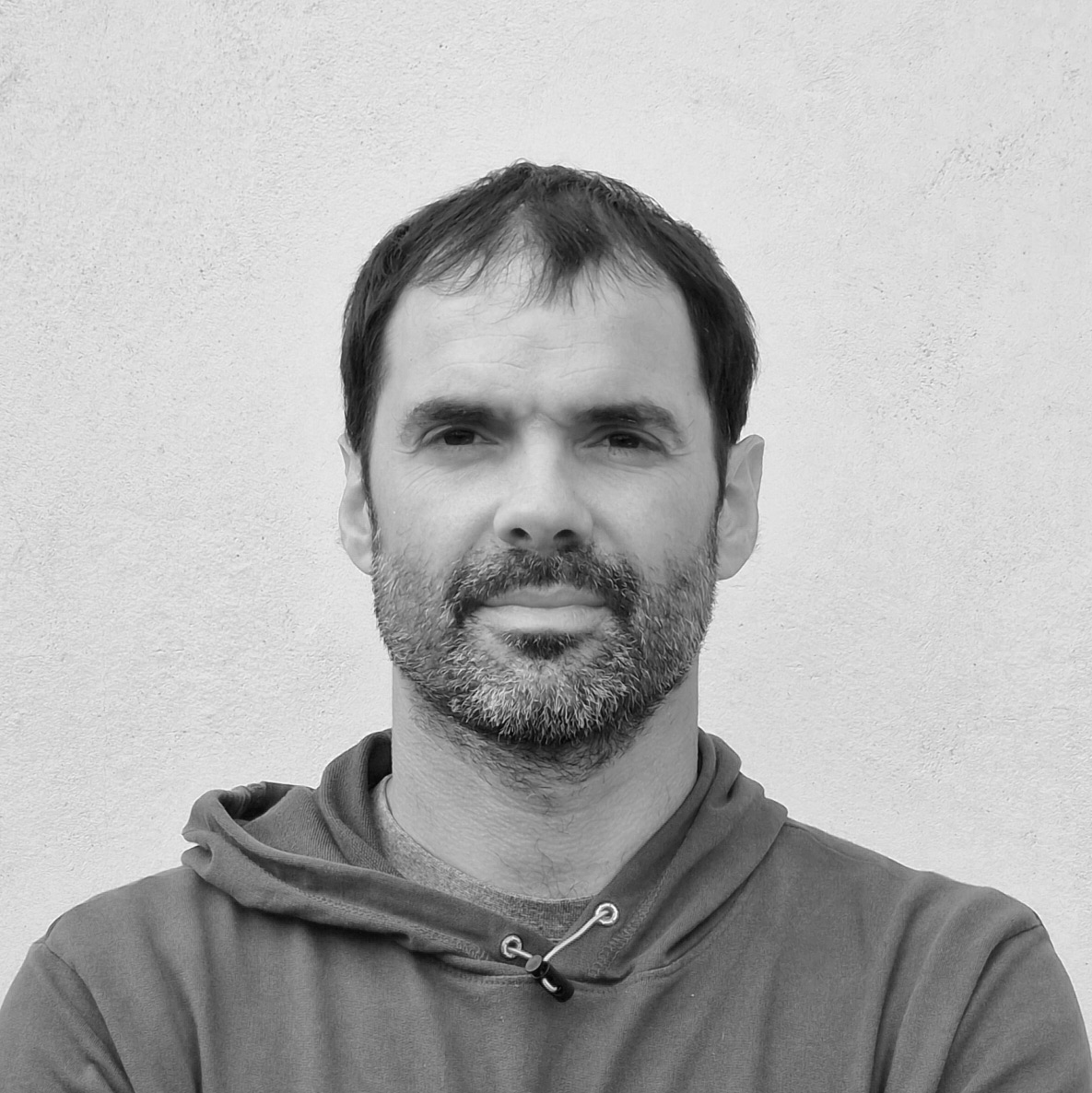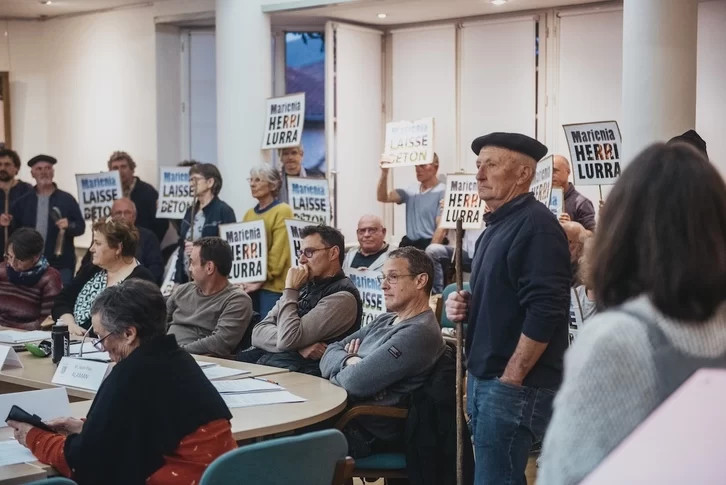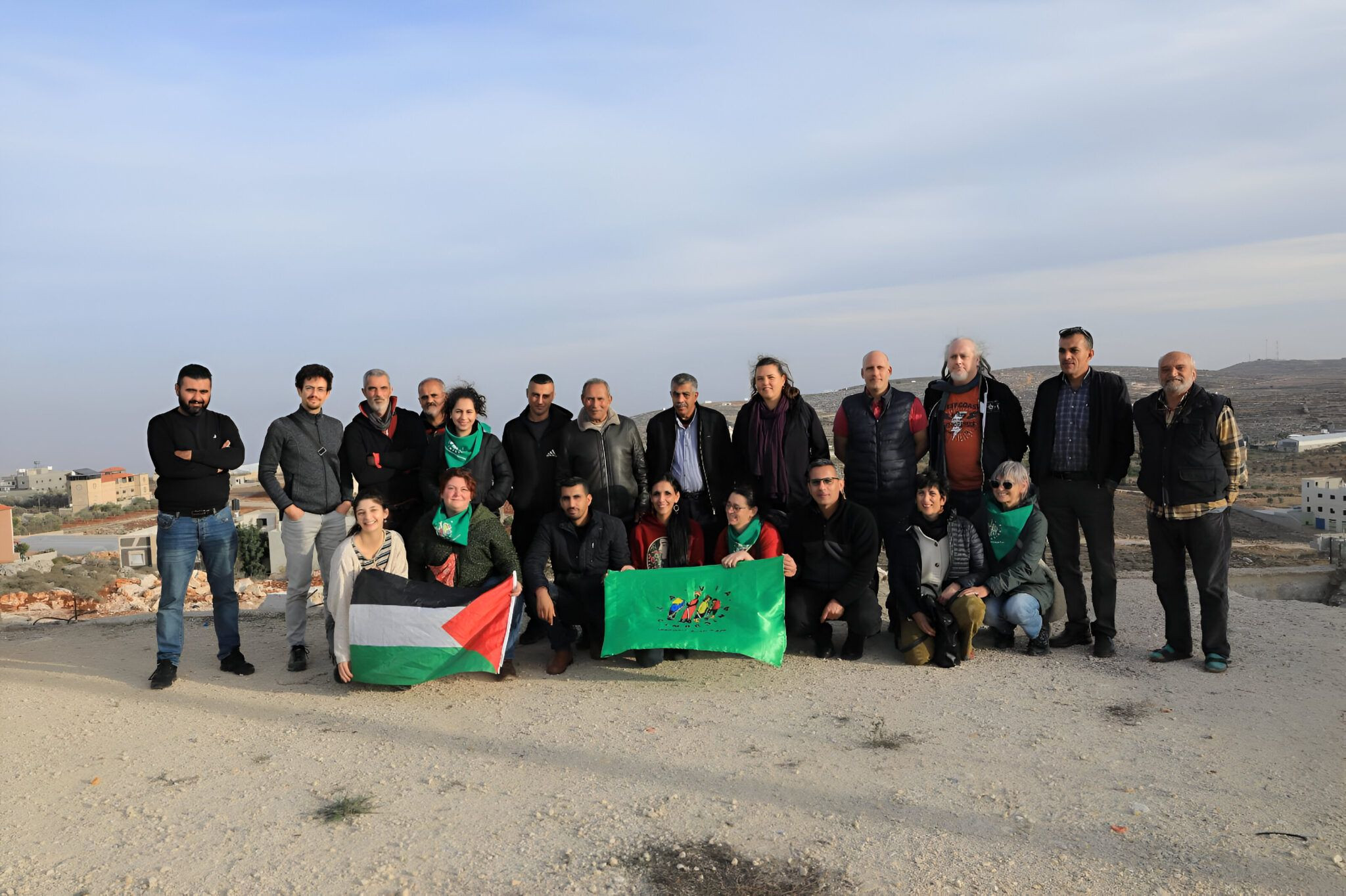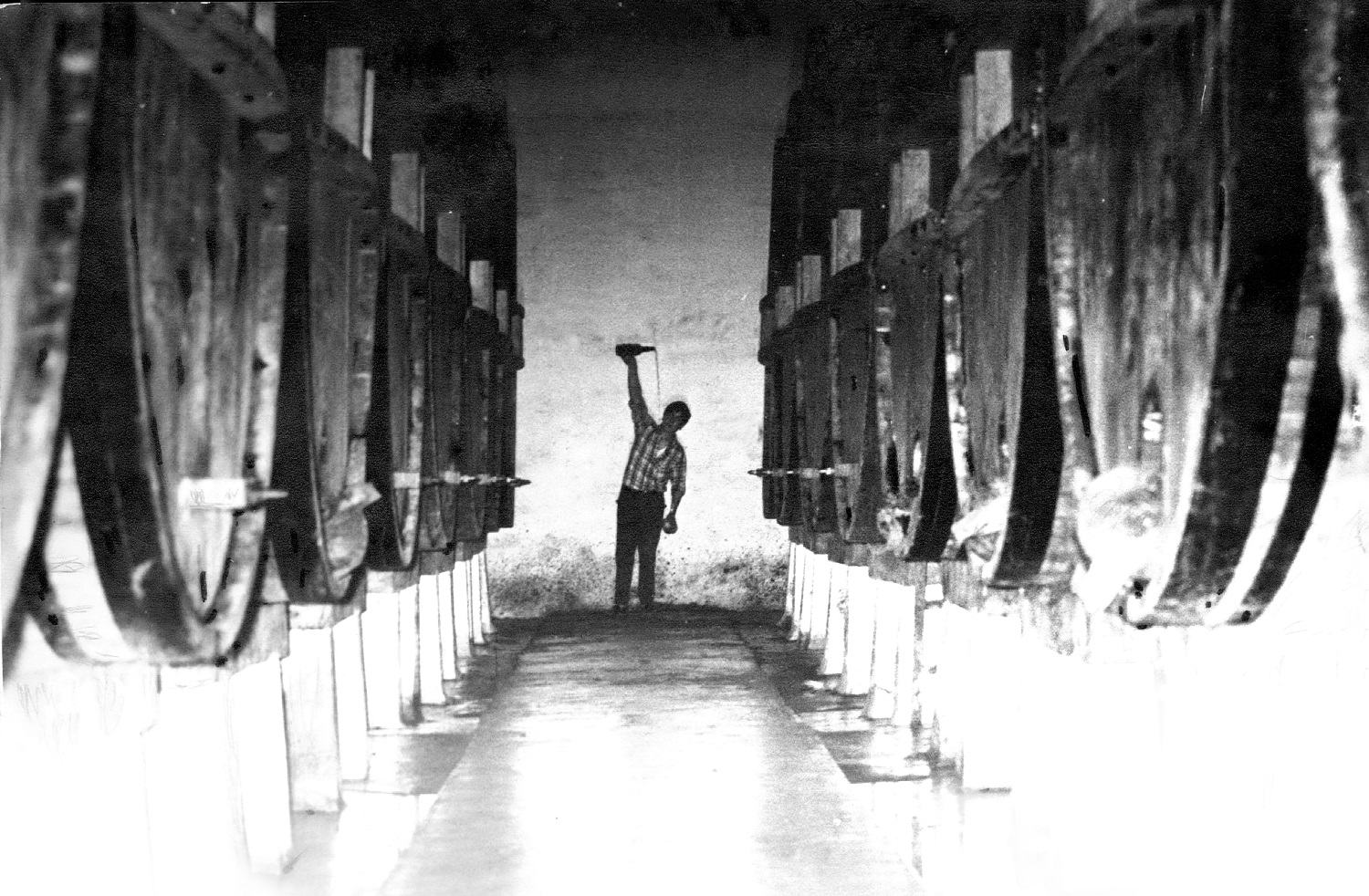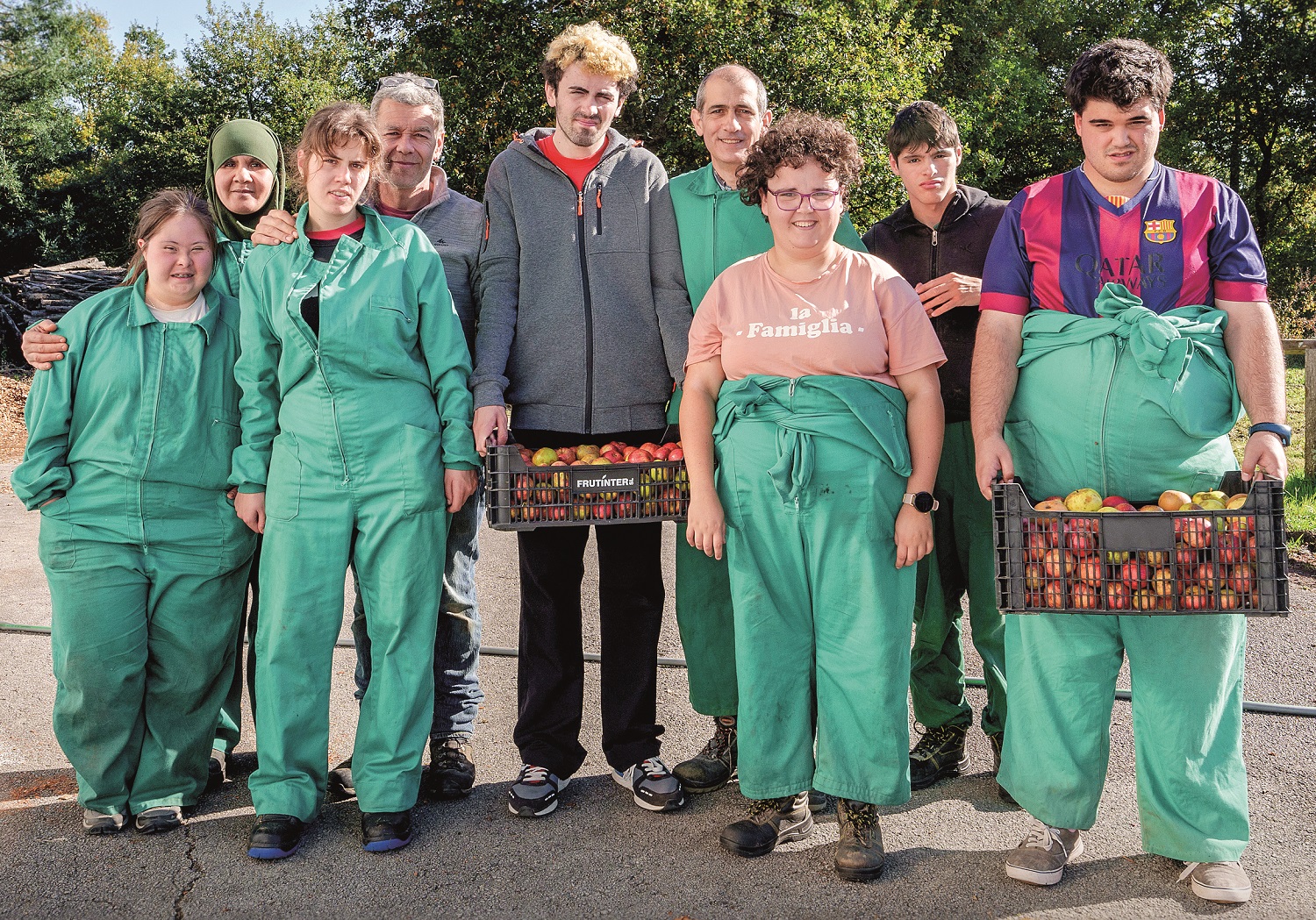Renée Vellvé: "They say the rise in food prices is a consequence of the war in Ukraine, but it's false."
- GRAIN is a partnership that works for food systems that farmers and local communities would provide and manage. In the 1980s, Renée Vellvék, together with another friend, created this very typical international structure. ARGIA spoke with him, among other things, to better understand the food price increases we have today. It does not tell us about land or agronomy, but it does talk about financing: because today cultivation is included in the financial market, without any regulation.
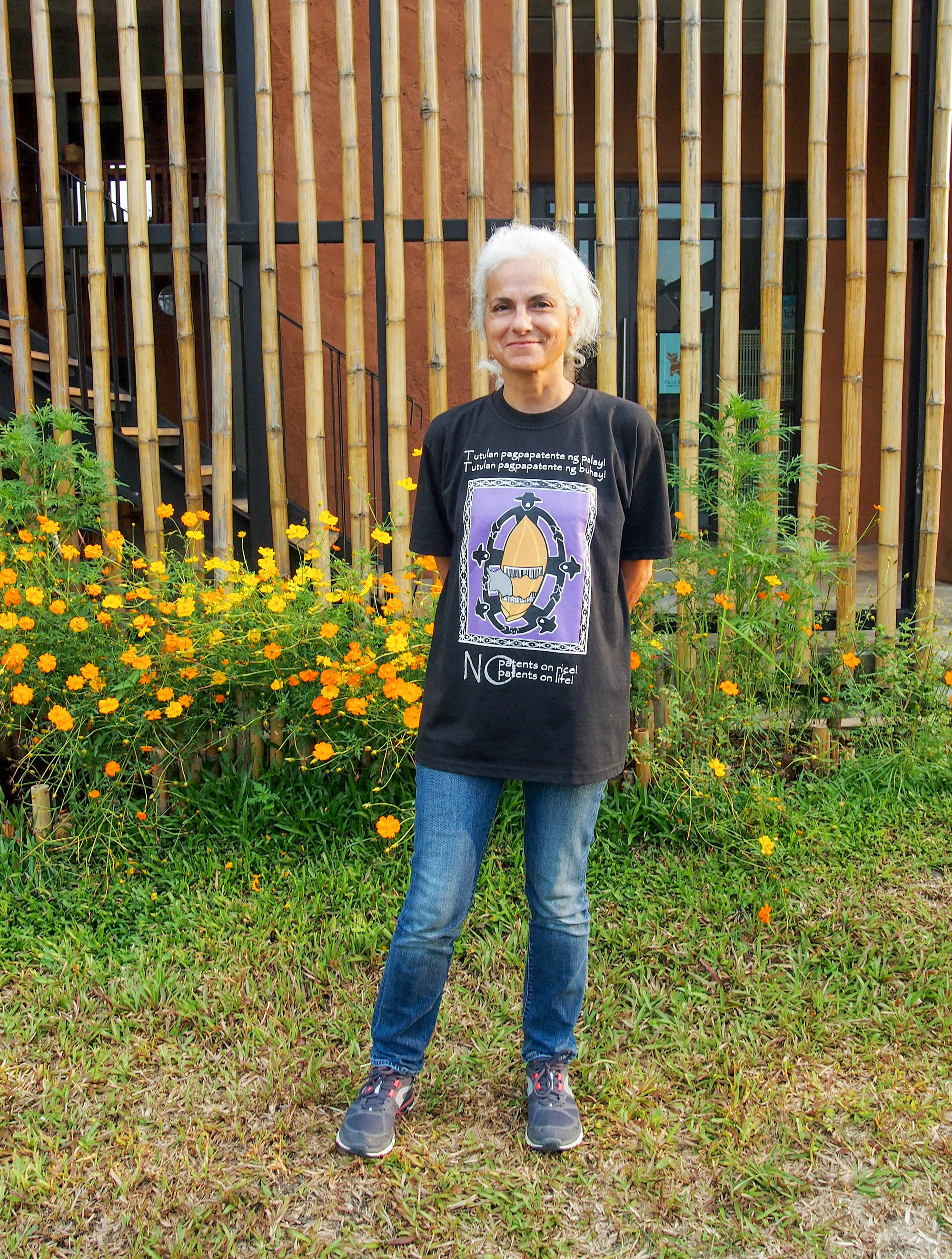
We have an increasingly globalised and liberalised food system. How did we get here? What has been the evolution of the crop in recent decades?
Since the Second World War, we have been in the process of industrialization of cultivation, which has initially occurred in the rich countries and then in the decolonized peoples of the South. Its aim is to increase the production of large monocultures by massively using commercial seeds, pesticides and chemical condiments. It was a programme driven by large lenders, including the World Bank, followed by free market treaties. But this program is written with the aim of increasing the wealth of large companies operating in agrobusiness, which are the big winners. It is a policy that produces social, ecological and political damage of a vicious nature.
The agricultural sector is in the hands of a single multinational and is increasingly linked to the financial sector. In more detail, what is the picture like?
90% of our food comes from the industrialization of the crop (in calories), there are 30 cereals at the base, of which three form half: bread, corn and irris. However, for over 10,000 years we have been growing and farmers and livestock farmers have developed a huge diversity of fruits, vegetables, cereals or livestock. In the case of plants, the seed industry has undermined this diversity. Under pressure from Lobby, since the 1960s, too many peoples accept the privatization of seeds, creating a kind of patent for seed producers, called the Union for the Protection of the Achievements of UPOV Landa. This legal system prohibits farmers from reusing some of the protected varieties as seeds, which they must repurchase each year. This allows a dozen companies – Bayer/Monsanto, DuPont/Dow, Syngenta and others – to control more than 60% of the world market. Of course, always in the name of “advancement”…
Food sector financing began in the 1970s. Introduction of crop products into the derivative financial products market and their deregulation. Goldman Sachs, JP Morgan and others, the giant banks operating in the financial market, have developed pathways for the exchange of crops with no physical basis. We are in full speculation. Furthermore, they have managed to avoid any control by regulators through lobbying. What was the result? That the price bubble fell into the 2008 financial and food crisis. We risk repeating it again.
Can you specify the instruments developed by those giant banks?
Banks and other financial actors create funds and sell parts to individuals or institutions. These funds allow investors to speculate by selling and buying parts. But they don't actually buy cereals, because there's nothing like that at the base. Thus, and due to regulatory errors, significant distortions can occur when the prices of these funds prevail, to the point of driving the prices of the real economy, that is, the physical market. This is what is happening today with the price of bread.
Is there a risk of stock market cracking?
No, supposedly no craca's going to happen. Speculation on the financial market, however, sets real market prices with all the consequences that this entails.
A striking number: four groups, Archer Daniels Midland (ADM), Bunge, Cargill and Louis Dreyfus, control 90% of cereal transactions, as well as the areas of seeds, chemicals, food processing, distribution and sales. Why is this reality dangerous?
"Already in the year 2021, price increases started due to the COVID-19 crisis and supply disruptions"
This concentration of power by the multinationals is very dangerous because we are dealing with posters. They falsify the real values of productions and have enormous power in governments. These industrialists focus all the risks on farmers, allocating all the benefits between them, also damaging soil and water pollution, animal suffering, nutritious impoverishment of food, greenhouse gas emissions, etc. In addition, they press to direct production towards the international market, placing food security and/or sovereignty in the background.
Food prices have grown in recent times. Can you explain to us what that embryo is?
Many claim that the cause is that Russia invades Ukraine. That is not true. Already in 2021, the price increase started due to the COVID-19 crisis and the supply disruptions. COVID-19 continues to influence today and, among other reasons, we have the increase in energy prices and the general inflation that this entails. As could not be otherwise, we also have speculation between the causes of price increases.
These are figures from the Food Bank: ten million people are added to extreme poverty in each of the families of a food price point. Once again, the poor countries of the South are the first to suffer.
Speculation on the financial market sets real market prices, with all the attendant effects.
Yes, that is the case. Some peoples have great external dependence and are often more vulnerable to price shocks. Most are peoples that have been destroyed by the conflict – Afghanistan, Yemen, Somalia, Ethiopia…. In addition, due to external debt, we also have countries with few currencies in which to buy food – Sri Lanka, Egypt, Sudan…. But in the rich countries the same thing: those who have the least wealth are the ones who suffer the most and suffer the rise in food prices.
I read that, although the decrease in Valentin Brichardi’s production in the CCFD Terre Solidaire structure is real, it is not proportional to the increase in prices, because we actually have food reserves. Do we have the speculation mentioned in the previous answer behind that check?
Today we are experiencing a food price crisis, but there is actually no supply problem. Many leaders say it is influenced by the war in Ukraine, but it is a lie. Indeed, Ukraine and Russia account for more than 25% of bread exports, but only 0.9% of production! Part of cereal production is geared to the world market, where Europe and seven other countries account for 90% of bread exports and 87% of maize exports are four countries. The problem is that some peoples, such as Egypt, are very dependent on Ukraine and Russia, and that they have to find other sources, yes or no. At the same time, some countries with stocks have paralysed exports to ensure food for their citizens.
But, to a large extent, the increase in prices is linked to excessive speculation, which already existed before the outbreak of the war in Ukraine. Lighthouse Project journalists have brought to light how agricultural commodity index funds have increased in the United States. This rise has nothing to do with actual supply and demand; the pursuit of investors’ profits causes prices to explode – see graph below. The problem is that this directly affects real prices. Thus, the poor are harmed as speculators sharpen their profits. The pandemic and the current food crisis have reached the conclusion of 62 new billionaires, and that is only in the food sector!
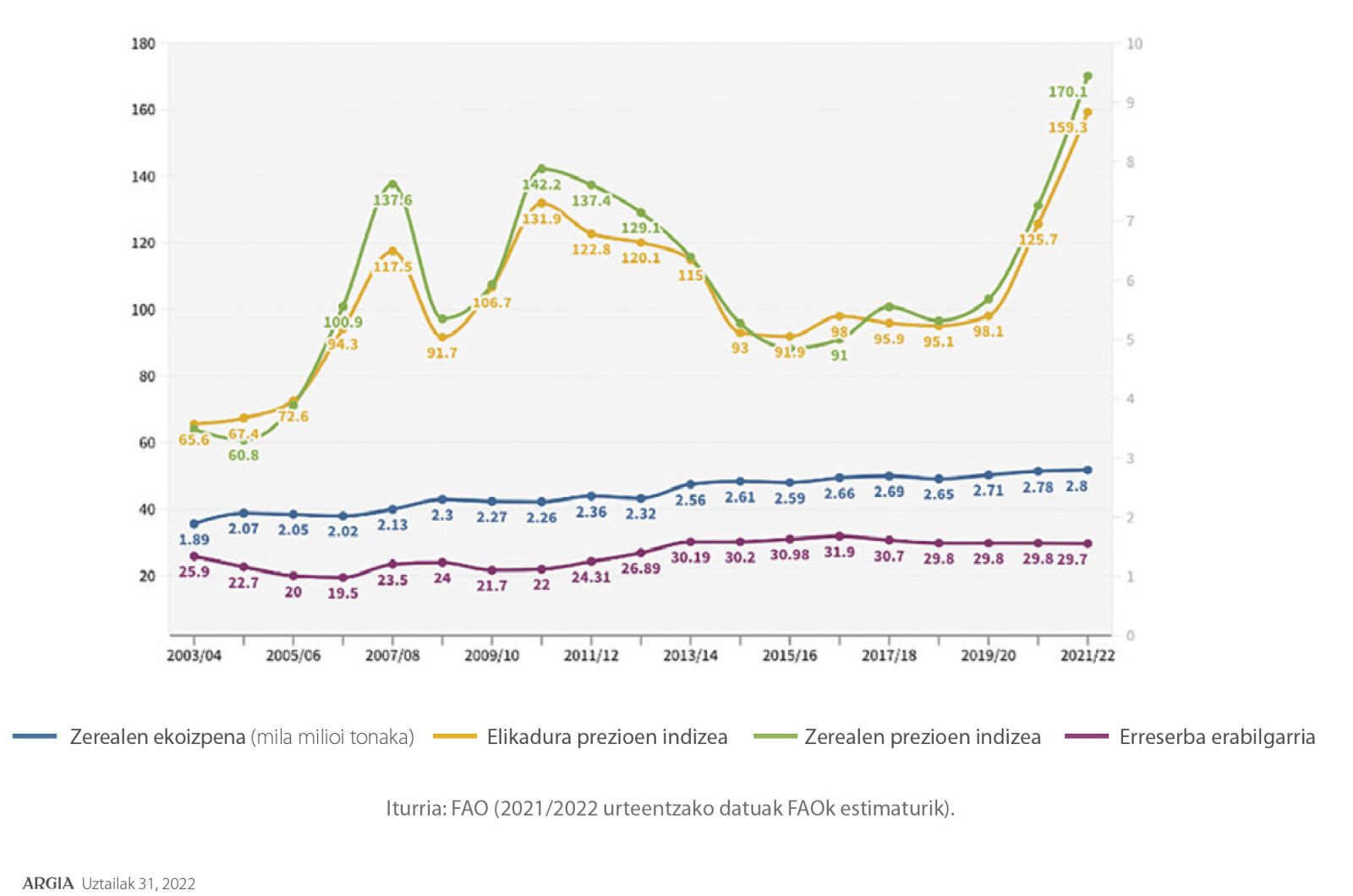
Can we repeat the hunger riots?
Yes, it is possible. I must stress that the war in Ukraine directly affects the cost and supply of condiments. Russia and Belarus are important sources of potassium, an essential mineral in the production of seasonings. They are also large exporters of natural gas, necessary for nitrogen condiments. The shortage of fertilizers and the increase in their price, more than double that in 2021, see the graph, will make the world’s farmers use less. In this regard, it is possible that the most timid crops will be touched next year and will have consequences for the availability of food. Today we talk about bread, but tomorrow it may be laughter, which is the staple of half of humanity.
.jpg)
The first victims are the peoples of the South. However, cultivation is very present, even for domestic consumption. How many famines in those villages? Are they producing or what just to export?
As I said, much of this famine is made up of peoples who are in conflict. Lenders are also countries subject to forced measures: they must produce raw materials for the world market (soya, maize, palm oil, etc. ), avoiding local needs. This specialization, aimed at controlling the industry and the large financial groups, is a destructive wealth that generates poverty.
Another factor is the shortage of land for type farmers. They are often dedicated to feeding the family, but they lose land because of the policies designed for the big ones. Irony is tragic when half of those affected by hunger are farmers.
We are increasingly facing the climate emergency. What are its effects on the food system? What worries you?
"Multinationals focus all the risks on peasants and have all their benefits for them"
It already causes a lot of damage to the food system. We have drops in production from floods, droughts or other disasters. We have a steady decline in the nutritional value of food, also a result of the climate crisis. We can deal with it, but we believe that we should abandon industrial cultivation, members of GRAIN. One third of the greenhouse gas emissions come from this model, whether it's from deforestations, large farms that accumulate animals in an ugly way, and from excess transport. They praised productivity, but maintained damage to the health, environment and welfare of farmers.
Various actors place food autonomy and sovereignty as solutions. You, too?
Yes, absolutely. Popular cultivation and agroecology would help us combat hunger and the climate crisis. To do so, however, resources should be allocated to this model: we need changes in agricultural policies, including in the European CAP, in order to be able to develop local markets, in order to support and guarantee the availability of quality production, in order to create jobs, in order to direct payments to farmers … That is not to dream, it should be a common objective.
This means a radical change in the system.
Yes, we believe we have to change the system. Change does not come from the agribusiness or the financial industry, because they have no interest in differentiating themselves from their power and wealth. They are constantly extolling false solutions, whether they be “green biofuels” or “carbon crops”, but they die. Experience has shown us that the reform of these companies and their way of doing business is not valid. They must be replaced. We need a new model in which the leadership of farmers and local communities rests in common sense.
To better understand the current food system, are there ideas you would like to add?
It must be made clear that land grabbing and concentration are the harmful problems we have at the base. Agricultural land is a secure value and a financial asset for investors. At the time of the 2008 food and financial crisis, we saw the conquest of real lands, which did not occur only in the countries of the South. Control over the Earth is essential and land reforms are needed to support it, even in Europe.
Datorren astean Departamenduko Laborantza Ganbarako hauteskundeak ospatuko dira Ipar Euskal Herrian. Frantzia mailako FDSEA eta CR sindikatuez gain, ELB Euskal Herriko Laborarien Batasuna aurkezten da, "euskal laborarien defentsa" bermatzeko.
Euskal Herriko Laborantza Ganbera elkartearen hogei urteak ospatu zituzten asteburuan Ainhize-Monjolosen. 2005eko urtarrilaren 15 hartan sortu zuten Lapurdi, Baxenabarre eta Zuberoako laborantzaren garapena –hori bai, iraunkorra eta herrikoia izan nahi duena–... [+]
Departamenduko Laborantza Ganbarako hauteskundeen kanpaina abiatu da. Urtarrilaren 14an bozetara aurkezten diren hiru sindikatuen ordezkariekin bi oreneko eztabaida sakona antolatu zuten Euskal Hedabideek, osoki euskaraz.









